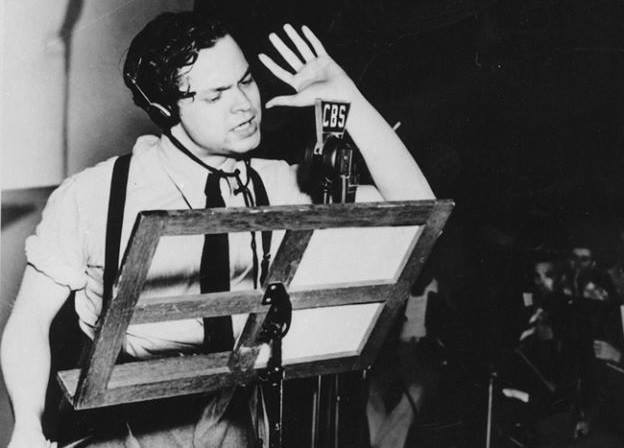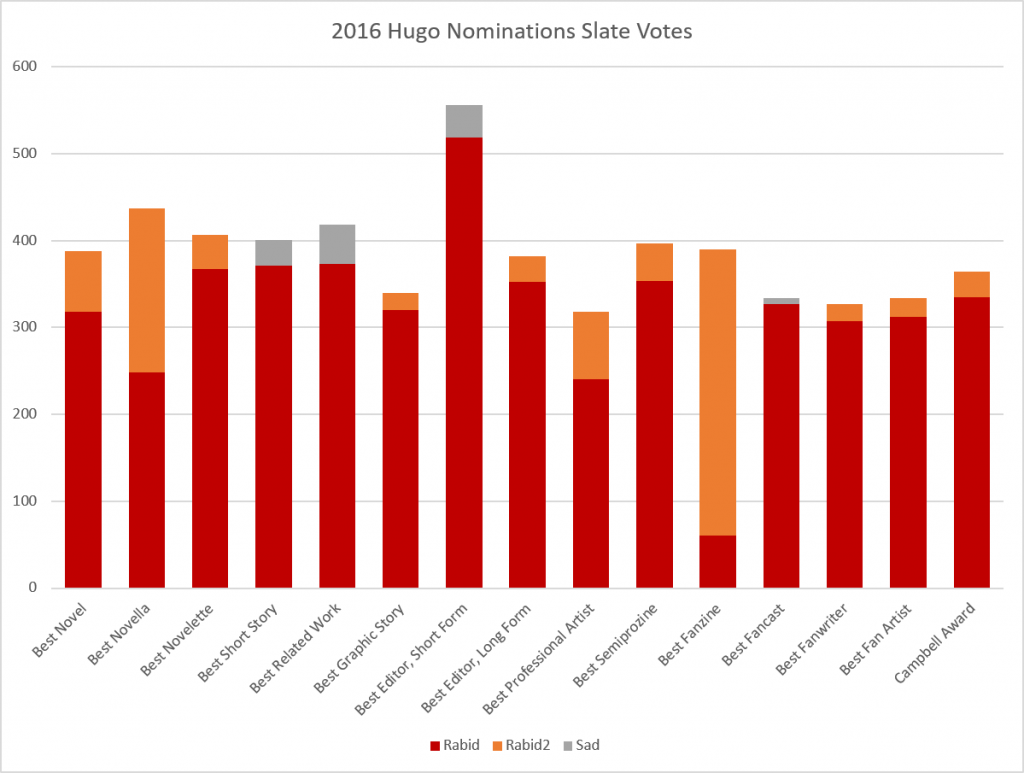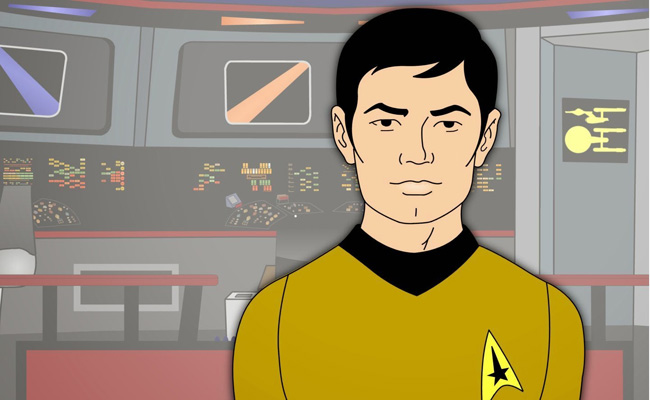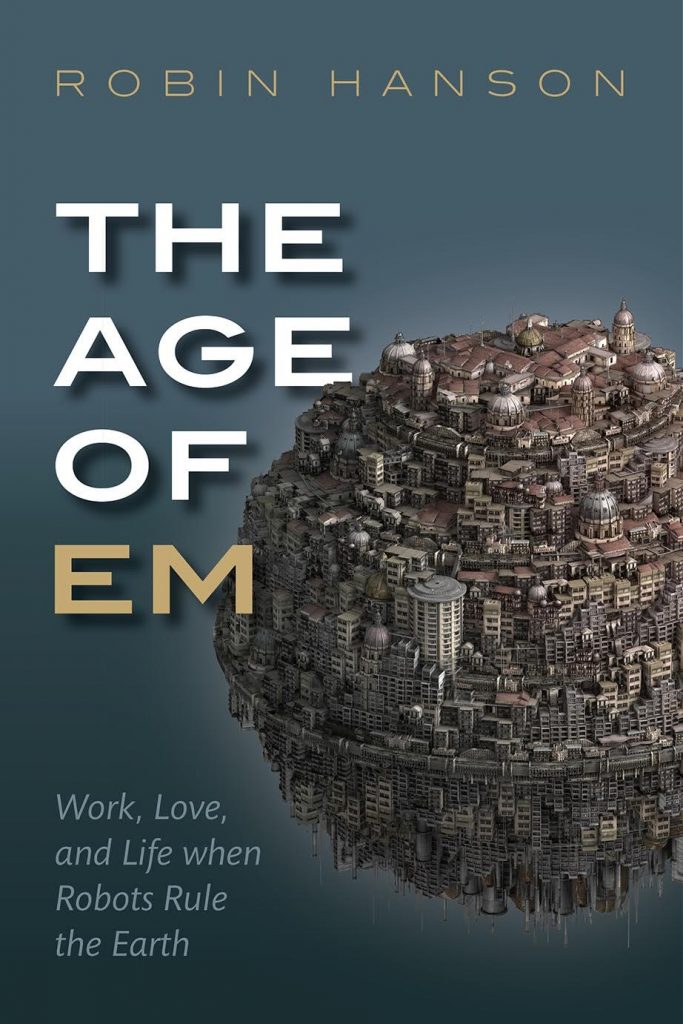(1) RELIGHTING FIREFLY. CinemaBlend’s Nick Venable has been listening to actor Alan Tudyk, who says “Nathan Fillion Has an Awesome Idea for More Firefly”.
[Alan Tudyk] “I’m always hopeful that it’ll come back in some form or fashion. I think as long as you have Nathan Fillion – truly, if you have the captain – he can put the crew back together. Some new faces, some old faces, and get back in the air. I think Nathan pitched an idea once to me, and I think he actually got it from some fan fiction: Now, out in some shack on some forgotten moon somewhere, somebody comes and knocks on [Mal’s] door and says, ‘We need you.’ And he answers the call.”
I know that you guys might not have gotten goosebumps like I did when Alan Tudyk was saying it, but I’m sure everyone pictured that potential opening scene accordingly. It’s the perfect set-up for an action narrative, with the unpredictable hero getting picked out of reclusion to head back out for one last mission. One. Last. Mission. Not that anyone said this would have to be the final mission for Mal Reynolds, who may or may not still have his Captain status, since there should never be a last mission for him.
I’m picturing Nathan Fillion with a big giant beard, and he’s complaining about the “gorram WiFi never working” on his moon. There’s probably some kind of a booze still behind his shack. And something happened that was so foul that he vowed never to get back out into the cosmos again, for either fun or profit. But then maybe Jayne or Zoe is in trouble – take that, Jayne – and only Mal can be the one to bring him/her/them/all the gold back. Combine that with the masterfully wild shot that Joss Whedon never got to bring to Firefly, and it all starts to write itself, though that’s only helpful if the project can also order itself to series and air itself.
(2) KC DISCOVERS SUSHI. Scott Edelman of the Eating the Fantastic podcast invites you to “Take a break for sushi with Kathleen Ann Goonan” in Episode 22 of the series.
I may have given you the impression, based on the three previous episodes of Eating the Fantastic, that all I ate while I was in Kansas City for this year’s World Science Fiction Convention was BBQ. Not true! This episode’s guest requested sushi, which led us Bob Wasabi Kitchen, giving me some respite from the meat sweats.
And who’s the guest this time? Kathleen Ann Goonan, whose first novel, Queen City Jazz, was a New York Times Notable Book of the Year, and who won the John W. Campbell Memorial Award for Best Science Fiction Novel for In War Times. And, I should add, who wrote the story, “The Bride of Elvis,” which I had the honor of publishing twenty years ago (yikes!), back when I was editing Science Fiction Age magazine.
(3) LIFE OF TOLKIEN. The Verge reports “J.R.R. Tolkien biopic Middle Earth will add new depth to Lord of the Rings”.
Earlier this week, Deadline revealed that New Line Cinema would be revisiting the worlds of J.R.R. Tolkien. Rather than adapting one of his many novels or stories, director James Strong will be helming a film about the author himself, which has the potential to give viewers an entirely new way of looking at the works that he’s most famous for.
Middle Earth is described as following Tolkien’s “early life and love affair with Edith Bratt,” as well as his service to the British Army during the First World War. The film, to be written by Angus Fletcher, is reportedly based on years of archival research on Tolkien’s life.
(4) VAUGHN OBIT. Actor Robert Vaughn (1932-2016) died November 11. His most famous role was Napoleon Solo in The Man from U.N.C.L.E. which aired from 1964-1968, and reprised in a 1983 reunion movie for television. When reruns of the late-1950s series Men Into Space began airing recently, Rich Lynch spotted a young Robert Vaughn in his first sf genre role, the episode “Moon Cloud.” He appeared in episodes of dozens of TV series over the decades, and in several movies, notably Bullitt and The Magnificent Seven.
The late James H. Burns wrote several File 770 posts about Vaughn, whom he had interviewed for print articles.
When I chatted with Robert Vaughn a few weeks ago, there was a fascinating surprise…
…Vaughn had just spent, for the first time, I believe, a great deal of time watching “The Man From U.N.C.L.E.”!
When the U.N.C.L.E. marathon was on, a few months ago (was it on the DECADES cable channel?), Vaughn found himself checking in, within the coziness of his Connecticut home.
He had never really seen the episodes, and was now watching a number of the excellent first season shows.
Now, this isn’t unusual for any actor. In the 1960s, the schedule on television shoots could be overwhelming. (That’s been true, really, in any era of filmmaking.) Vaughn was also busy with his private education, and of course, civic pursuits….
We were at a tribute to Vaughn at the Players Club in Manhattan, and were chatting amiably afterwards:
Vaughn was I think I bit surprised and happy that there was someone to talk with who knew a bit about various aspects of his career… (Plus, I had just explained the ending of Bullitt to him, something which had apparently eluded the both of us, for years!)
…In the early ’70s. Vaughn had signed to star in The Protectors, a syndicated, half-hour action adventure series about international detectives, from ITC and producers Gerry and Sylvia Anderson. The Andersons, of course, are well known to TV buffs and science fiction fans of a certain age for Supercar, Fireball XL5, Thunderbirds and Captain Scarlet — all marionette shows, and the live-action series UFO, and Space: 1999.
…The Protectors was a big deal for Anderson, his first major (and, as it turned out, last) mainstream–non-fantasy–endeavor.
The Andersons invited Vaughn and his then business partner to their London home for dinner, for a celebratory meal.
Vaughn and his business manager/pal had drinks in the living room, and then Gerry and Sylvia led them into the formal dining room…
It was only this small group, but the huge table was set for MANY:
And seated at each gilded chair was one of the Andersons’ famous Supermarionation figures!
(5) TODAY’S BIRTHDAY BOY
- Born November 11, 1922 – Kurt Vonnegut
(6) VERTLIEB ON FILM HISTORY PANELS AT PHILCON. Steve Vertlieb wants you to know you can find him at Philcon 2016 in Philadelphia discussing Ray Harryhausen and Hammer Films.
The Convention of The Philadelphia Science Fiction Society at the Crown Plaza Hotel in Cherry Hill, New Jersey, on Saturday, November 19th, 2016, presents…
THE CLASSIC HAMMER FILMS: AN OVERVIEW
[Panelists: Steve Vertlieb (mod), Richard Stout, John Vaughan, Tony Finan, Mark Leeper, James Chambers]
Hammer Films released numerous productions from the 50’s through the 80’s. From Frankenstein and Dracula with Christopher Lee and Peter Cushing to the astonishingly brilliant Quatermass films, these movies helped set up the future of Science Fiction media
Sat 5:00 PM in Crystal Ballroom Two (1 hour)
RAY HARRYHAUSEN: A LIFE
[Panelists: Steve Vertlieb (mod), Richard Stout]
An affectionate remembrance of a motion picture special effects pioneer, and a nearly fifty year admiration and friendship. Writer Steve Vertlieb recalls the Harryhausen legacy, and a profoundly moving personal relationship with a fantasy film legend
(7) SHATNER DRAMA. The Nate Sanders firm is auctioning a handwritten soliloquy “William Shatner Sincerely Wants to Know Why George Takei Doesn’t Like Him – ‘…Not so long after that very friendly time he began to say very mean things about me. – Why?’”
Fascinating account by William Shatner on his relationship with George Takei, where he seems to try to sincerely understand why Takei doesn’t like him, even perhaps using the account as a public question. Composed on Shatner’s personal stationery, autograph signed recollection reads in full, ”George Takei was living in a beautifully appointed apartment. I was there to interview him for a book I was writing. He was most gracious – kind, mannered even formal. He was the essence of an Asian gentleman. We talked memories of Star Trek, his very difficult childhood given that he and his family were put behind a wired fence – in effect a concentration camp. We were at war with Japan and American fears were such that the government put everybody with a Japanese background into those camps – what a terrible beginning of life. But George had overcome [by] working hard and with intelligence he had bettered himself – he had disciplined his body as a runner and he had done the same with his mind; he was running for office as well. His apartment showed all that discipline – it was ordered, it had character, it was immaculate and so was George. I had never really got to know him. He would come in every so often during the week while we were shooting Star Trek. I was busy learning lines and dealing with my life, so I really can’t remember a meaningful conversation – I’m sure that would be my fault – my lack of attention – Never the less when we all wrapped that last day of shooting it was all meaningfull [sic] – for all of us – Star Trek was cancelled. Until this moment in his apartment we had not spoken. Not so long after that very friendly time he began to say very mean things about me. – Why? / William Shatner”. Single page measures 7.25” x 10.25”. Near fine condition.
(8) BUT WAIT, THERE’S MORE! Also on the auction bloc: “William Shatner Defends His Decision Not To Attend His Friend Leonard Nimoy’s Funeral – ‘…we’ll mourn Leonard, say his name and then pledge your money….’”
Very interesting handwritten signed recollection by William Shatner on the death of his friend Leonard Nimoy, who served as Shatner’s best man at his 1997 wedding, but with whom he was no longer speaking to in 2015 when Nimoy died. Shatner famously did not attend Nimoy’s funeral, which he explains here: ”Leonard was very sick – he was in the hospital. His health was difficult – he was in fact dying – but nobody but his family knew – certainly I didn’t. A month or so prior to his going into the hospital, the American Red Cross asked me to do their largest fundraiser. It would be a huge event, thousands of potential donors, millions of dollars. I enthusiastically said yes. I was to leave on a Friday night for a Saturday performance when the news of Leonard’s death was delivered – the funeral was to be Sunday – what to do? My immediate thought given the blinding news of his death, my appearance or non appearance would not be noticed – also what about the people who had given good money with the expectation of seeing me – heartbroken dilemma – I chose to go the Red Cross and as I said to the people there – all is dust – your name, my name, Leonard’s name will soon be forgotten – but the good deeds you do tonight will be long remembered – I meant those emphatically. Helping others ever reverberates through time – we’ll mourn Leonard, say his name and then pledge your money. / William Shatner”. Single page composed on Shatner’s personal stationery measures 7.25” x 10.25”. Near fine condition.
(9) COMPARING HORNBLOWER AND KIRK. The Nate Sanders house also is auctioning this handwritten anecdote: “William Shatner Describes Captain Kirk: ‘…the gravity of each decision, the mastery of everybody on board…riding a stud horse bareback, loving the ladies – sound familiar?…’”
Fantastic handwritten signed recollection by William Shatner, reflecting on Captain Kirk, his famous alter ego from ”Star Trek”. Composed on Shatner’s personal stationery, he offers an unexpectedly frank and humorous account of Kirk: ”’Horatio Hornblower’ – Roddenberry said in answer to my question ‘who is he like’ – so I read Horatio Hornblower. Horatio is a captain of a British ship plowing the unknown oceans of America in the 1600’s – the loneliness of command, the gravity of each decision, the mastery of everybody on board – awesomeness of command. Yes, very good I got it- and that was the basis of the character of Kirk – I had just, the year before, shot a movie of Alexander the Great, this marvelous, historical character who was one of the great and noble characters of history – using a sword, riding a stud horse bareback, loving the ladies – sound familiar? And those tight costumes!! I had been lifting weights and put on some muscle, I was ready to play Capt. James Tiberius Kirk. Now all I had to do is remember ten pages of dialog – a lot of those words had no basis in English – Scientific goblygook that required head pounding memorization. Memorizing is difficult, some actors, like James Spader, have a photographic memory – they glance at a paper and it’s there forever – me? I have to go over and over and over – it’s a source of great tension – what’s the next word? The eternal actor’s question. / William Shatner”. Single page measures 7.25” x 10.25”. Near fine condition.
(10) GENE FOUGHT FOR THE EARS. The fourth item of Shatner holography being auctioned by the Nate Sanders firm is — “William Shatner Reflects on Gene Roddenberry & the ‘Star Trek’ Pilot – ‘….there was some objection to Spock’s ears. ‘Too devilish’ somebody said – Gene fought for the ears….”
Fantastic handwritten signed recollection by William Shatner on Gene Roddenberry and getting the ”Star Trek” pilot made, as well as his relationship with Roddenberry as the show progressed. Composed on Shatner’s personal stationery, in full: ”I met Gene Roddenberry over the phone – he had called me in New York to ask me to come see a pilot film he had just made for N.B.C. He was calling it Star Trek. I flew to Los Angeles and went to see this pilot film that N.B.C. didn’t want to buy. I thought it was terrific – I sat in Gene’s office and made a few suggestions – I thought the pilot was a little slow, a little ponderous. It could use some lightness, some humor – He looked at me from across the desk and after a silence said ‘Let’s do it’ – We shot the pilot film for the second time and we were rewarded by a sell. He told me later there was some objection to Spock’s ears. ‘Too devilish’ somebody said – Gene fought for the ears and like in a really good bullfight, he was awarded the ears. Gene was on the set in these early shows and we looked to him for guidance and counsel – which he freely gave. I would frequently go to the office and talk to him about the script, some item of dialogue, some thought that I might have – in these early years he was open – that slowly changed as time went on. / William Shatner”. Single page measures 7.25” x 10.25”. Near fine condition.
(11) HEIRESSES OF RUSS. A.M. Dellamonica posts the “Heiresses of Russ 2015 ToC Announcement”.
I am so pleased to announce the finalized line-up for Heiresses of Russ 2016, from Lethe Press, edited by Steve Berman and myself. This is my editorial debut and it’s the sixth, I believe in the HoR series. As the Lethe Press site says, Heiresses of Russ reprints the prior year’s best lesbian-themed short works of the fantastical, the otherworldly, the strange and wondrous under one cover.
Here’s the line-up:
- Grandmother ley-neylit’s Cloth of Winds by Rose Lemberg
- The Occidental Bride by Benjanun Sriduangkaew
- The Devil Comes to the Midnight Café by A.C. Wise
- And We Were Left Darkling by Sarah Pinsker
- A House of Her Own by Bo Balder
- Love in the Time of Markov Processes by Megan Arkenberg
- Where Monsters Dance by Merc Rustad
- Hungry Daughters of Starving Mothers by Alyssa Wong
- Fabulous Beasts by Priya Sharma
- The Wollart Nymphs by Melissa Scott
- The New Mother by Eugene Fischer
- Eldritch Brown Houses by Claire Humphrey
- The Tip of the Tongue by Felicia Davin
- Where Can a Broken Glass Mend? by Sonya Taaffe
- A Residence for Friendless Ladies by Alice Sola Kim
- The Deepwater Bride by Tamsyn Muir
- Doubt the Sun by Faith Mudge
(12) SECOND FIFTH ELEMENT. Sciencefiction.com invites us to “Check Out The First Trailer For Luc Besson’s ‘Valerian’”
Although Luc Besson has only occasionally ventured into the realm of science fiction, with films like ‘Lucy‘ and of course ‘The Fifth Element’ to his credit, he has nonetheless made a substantial mark on the genre. And now he is poised to do so once again, with his upcoming film ‘Valerian and the City of a Thousand Planets‘.
Based on the long-running French comic ‘Valerian and Laureline’, created by Pierre Christin and Jean-Claude Mezieres (who collaborated with Besson, a longtime fan, on ‘The Fifth Element), the film follows Valerian and his partner/love interest Laureline, a pair of government operatives tasked with investigating Alpha, a vast, alien metropolis that may harbor a grave danger to human civilization….
[Thanks to John King Tarpinian, and Martin Morse Wooster for some of these stories. Title credit belongs to File 770 contributing editor of the day Jack Lint.]







